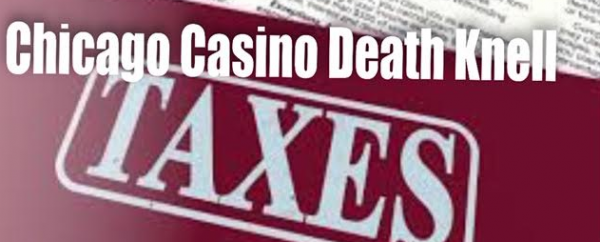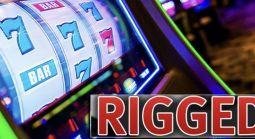Onerous Tax Would Make Casino in Chicago Unprofitable
CHICAGO (AP) — A casino in Chicago would not make enough profit under current Illinois law to be worth it, a consultant said Tuesday.
 *6 weeks free trial - test drive - best in the biz *Deposit with Bitcoin - They'll double it! *Get your own domain, customized website, logo *Switch in under an hour, earn mrore $$ for doing so *Odds featured on DonBest.com *Thousands of betting options daily + live in-play *Easy and discreet payment options include gift cards *Walmart gift cards also accepted Start Earning Money From Your Sheet Here |
Union Gaming Analytics' study cited the state's "onerous tax and fee structure" on casinos in reporting that an operator could expect a profit of as little as 1%. Similar facilities in Illinois and the region take home 20% or more.
The study financed by the city of Chicago was required by a law that Democratic Gov. J.B. Pritzker signed in June to substantially expand casino gambling in Illinois. The revenue generated is to help finance a $41.5 billion infrastructure-improvement plan.
The Las Vegas, Nevada-based consultant analyzed five sites in Chicago, including parcels formerly used by Michael Reese Hospital, the Robert Taylor Homes public housing project, and U.S. Steel. The study noted that a developer would have little interest after paying a $15 million license reconciliation fee, up to $120 million in gambling-position fees and a 33% privilege tax on adjusted gross receipts — in addition to income taxes.
"The reconciliation fee alone would wipe out any profits generated for many years, if not decades," the study said. "The return on investment profile for all five sites is subpar, if not negative over the five years projected."
The Illinois Gaming Board has 90 days to ask lawmakers to change the terms of the Chicago casino's operation. Mayor Lori Lightfoot said the city plans to pursue the terms change.
"We have been clear from Day One that the creation of a new casino for Chicago has to be financially viable and address the revenue needs of the city of Chicago," Lightfoot said in a statement. "While the study confirms our concerns about the tax structure that the legislature passed, we know that this can be addressed."
The law's provisions for gambling expansion outside of the Chicago casino also would have a negative effect. Development in Illinois is expected to gain $260 million in the next five years from Illinois gamblers currently going to Indiana casinos. But Chicago will get intrastate competition from casinos in suburbs north and south of the city, video poker terminals, and betting sites at horse racing tracks.
Lawmakers approved new casinos in Rockford, Danville and Williamson County in southern Illinois, although the study indicates a Chicago casino would not compete for gamblers visiting those facilities.
Lightfoot released the results of a survey in which Chicago residents were asked about their preference for a casino. Among the 10,000 responses, just over one-third surveyed want a casino near downtown, while just under one-third want a casino in a space needing new development.














